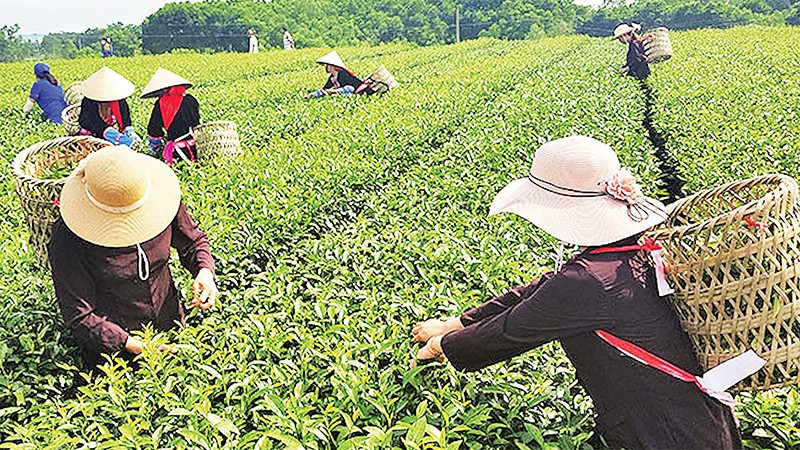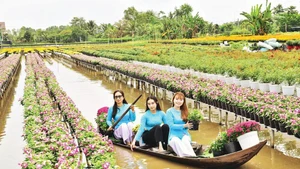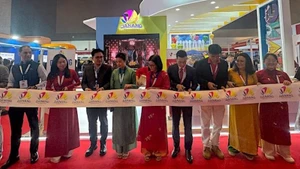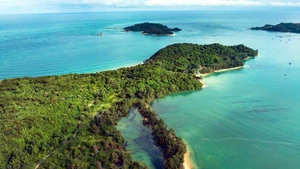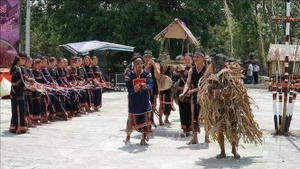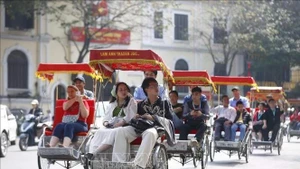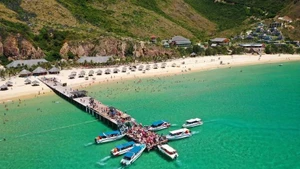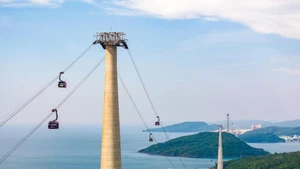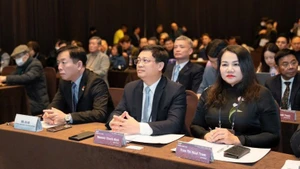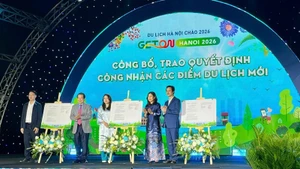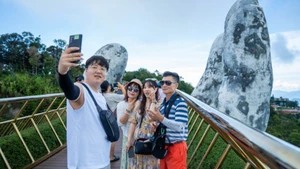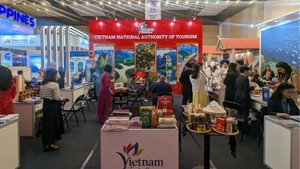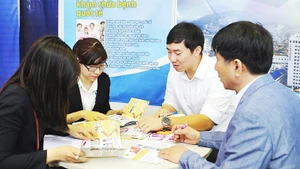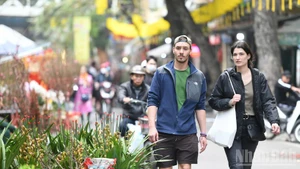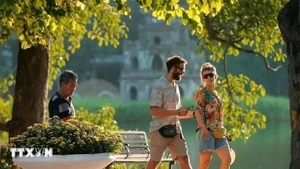Along with the province's strong tourism forms, such as sea and islands tourism, cultural tourism, spirituality tourism and ecotourism, new and diversified products that serve the needs of tourists will be created. In addition, the products will also make an important contribution to improving the lives of farmers, promoting sustainable agriculture and rural development.
In recent years, realising the advantages of combining agricultural farm development with tourism, many localities of Quang Ninh province have had the idea of creating attractive models, such as rural farm tourism, experience as farmers, experience the daily activities and cuisine of indigenous people. These models have created attractive agricultural tourism destinations and products, attracting domestic tourists and international guests.
Effectively exploiting potentials and strengths
Binh Lieu is considered one of the places that attract a large number of tourists to visit, with many models of community-based tourism with local identity. The district has developed special product groups to bring many interesting experiences to visitors.
Binh Lieu flower garden is a new attractive tourist product in Cao Son village, Hoanh Mo commune, invested by Binh Lieu Flower Cooperative with a scale of 2ha. Here visitors can immerse themselves in the peaceful and hospitable life of the indigenous people, enjoy the majestic natural scenery, and fresh air, and enjoy the beauty of all kinds of flowers.
Director of Binh Lieu Flower Cooperative, Nguyen Thanh Hai said that by coming to Cao Son flower garden, visitors can visit nurseries, learn about the flower growing process, experience strawberry picking, orchid cutting, and gerberas; experience being a girl of Dao, Tay, and San Chi ethnic groups and take pictures with flowers. Cao Son flower garden is an attractive destination for many tourists when coming to Binh Lieu.
Compared to the "Da Lat" of Quang Ninh, Binh Lieu possesses the advantage of beautiful natural landscapes and the unique traditional culture of the ethnic minority community. This is also a valuable resource for the development of community tourism and experiential eco-tourism in the Binh Lieu district. Currently, the district is continuing to research and develop other types of tourism.
Binh Lieu successfully organised the Golden Season Festival, especially Luc Hon terraced fields, recognised as a provincial-level relic, contributing to opening up opportunities for tourism development, associated with the conservation and promotion of the natural and cultural landscape values of Binh Lieu terraced fields.
These advantages of the landscape have created favourable conditions for local people to invest in and develop tourism services. Models of agricultural cooperatives producing strong products of Binh Lieu are developing effectively, becoming a tourist destination with unique and engaging experiences for visitors.
Head of the Culture and Information Department of Binh Lieu District, Hoang Huy Trong shared that in recent years, tourists to Binh Lieu have increased. This confirms the correct direction of the district in maintaining the effectiveness of the annual festival, cultural and tourist activities.
According to experts, the type of agricultural tourism products in Quang Ninh is quite diverse.
Chairman of Quang Ninh Tourism Association, Nguyen The Hue said: Agricultural tourism has helped Quang Ninh diversify products, create more attraction for tourists, and increase income for people in rural areas. However, in the current period, the development of agricultural tourism in Quang Ninh has not been commensurate with its potential and strengths but has only developed in a small and spontaneous manner without a specific strategic plan, not strong enough to create a sustainable tourism market, a typical tourism product of the province.
Remove "bottlenecks" in agricultural tourism development
Agritourism brings many benefits to both agricultural production and people's lives in rural areas, not only contributing to diversifying commercial activities and solving output problems for agricultural products but also supporting job creation and increasing income for farmers.
In addition, agri-tourism in some localities is also associated with the national target programme on new-style rural buildings, the OCOP programme, and the programme to preserve the cultural values of traditional craft villages, with the development of diverse products.
The development of tourism associated with the new-style rural building is one of the important solutions set out by Quang Ninh province in the programme on building new-style rural areas by 2025. Accordingly, the province focuses on implementing a series of tasks and solutions to develop tourism in association with the new-style rural building.
Director of Quang Ninh Department of Tourism Pham Ngoc Thuy said, that in the coming time, the tourism industry would continue to direct localities to identify trends in developing agricultural tourism in association with environmental protection, ensuring food safety and hygiene; multiplying the types of natural farms, organic farms, thematic farms, agricultural areas; focusing on developing green agriculture, limiting the use of chemicals, restoring traditional products and local specialities.
Local authorities need to pay more attention to this field through mechanisms and policies, such as: building a programme to develop agro-tourism, in association with the new-style rural building; investment in infrastructure for agricultural tourism.
Agricultural tourism development is becoming a trend of sustainable economic development in some localities of Quang Ninh, thanks to its strengths in value and available potential.
However, this model still faces many challenges in terms of mechanisms, policies and human resources.
In the coming time, the province needs to invest a lot of resources in the programme of building advanced and model new-style rural areas. Along with that, there are many policies supporting investment in rural technical infrastructure works, supporting interest rates on investment in developing production and trading of agricultural products and renovating the form of production organisation in rural areas.
